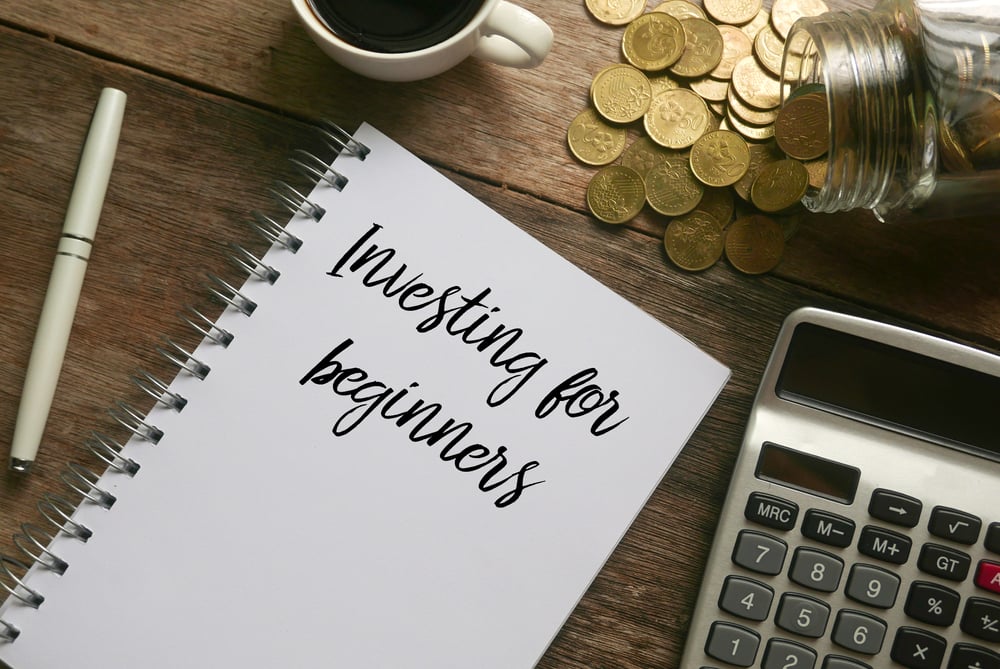Why You Should Start Investing Right Now

You may have heard that you should start investing as early as possible. And it's true! The earlier you start, the more time your money will have to grow. Why wait? If you're not sure how to get started, don't worry. We'll walk you through the basics in this blog post. Keep reading to learn why starting now is the best decision you can make for your future!
Compound Interest Works for You

When it comes to investing, compound interest is often touted as one of the biggest reasons to get started early. And for good reason – compound interest essentially enables you to earn money on your money. As your investment grows, so does the amount of interest earned. And over time, that can make a big difference. For example, let’s say you invest $10,000 at a 6% annual rate of return. After 10 years, you’ll have earned $6,000 in interest, for a total of $16,000. But if you wait just another 10 years to start investing, you’ll only have earned $3,600 in interest, for a total of $13,600. So starting early really can pay off when it comes to compound interest. That’s why it’s often said that the best time to start investing is now.
Starting is Easier Than Ever

When it comes to investing, there's no time like the present. In the past, investing was often seen as something that was only for rich people or those with a lot of financial experience. However, times have changed and now anyone can get started with investing, regardless of their financial situation. There are a number of free and low-cost investment platforms available, so there's no excuse not to get started. And with the current state of the economy, there's no better time to start investing than right now. By taking advantage of the current market conditions, you can set yourself up for financial success in the future. So what are you waiting for? Get started today and begin reaping the rewards of investing.
Partial Shares Make It Even Easier

Many people think that you need a lot of money to start investing, but that's not true. You can start investing with as little as $5 through partial shares. Partial shares allow you to own a piece of a company, even if you don't have enough money to buy a full share. For example, let's say you want to invest in Apple stock but each share is $200 and you only have $5. With partial shares, you could buy 0.025 shares of Apple for $5. As the stock price goes up, your investment will grow. And if the stock price goes down, you'll only lose a small amount of money. So partial shares make it possible for anyone to start investing, regardless of how much money they have.
Opening an Account is Dead Simple
Times are changing, and one of the ways in which this is most evident is in the world of investing. In the past, only wealthy individuals had the resources and knowledge necessary to invest in stocks and other assets. However, today anyone can open an account and start investing with just a few clicks. Thanks to online brokerages and robo-advisors, it has never been easier or more affordable to start building your own portfolio. So if you've been waiting for the right time to start investing, there's no need to wait any longer. Thanks to advances in technology, opening an account and starting to invest is dead simple.
Index Funds and ETFs Make Investing Easier

If you're like most people, the thought of investing in the stock market sounds daunting. After all, there are so many variables to consider and the risks can seem high. However, there are an increasing number of investment options available that can make the process easier. Index funds and exchange-traded funds (ETFs) are two such options. Index funds are a type of mutual fund that tracks a specific index, such as the S&P 500. ETFs are similar, but they trade on an exchange like stocks. Both index funds and ETFs offer a simple way to invest in a basket of assets without having to pick and choose individual stocks. And because they're passively managed, they tend to have lower fees than other types of investment vehicles. So if you're looking for an easy way to get started in investing, index funds and ETFs may be the answer.
You Might Already Be Investing

You may think that you're not ready to start investing yet, but you might already be doing it. If you have a 401(k) through your employer, you're already invested in the stock market. You might also have a mutual fund through your bank or an individual retirement account (IRA). So, if you're already investing, why not take the next step and start investing on your own? When you invest on your own, you have more control over your investment portfolio. You can choose which stocks or funds to invest in and when to buy and sell them. You can also set up automatic investments so that you're regularly contributing to your account. Investing on your own may seem like a daunting task, but with some research and guidance, it can be a rewarding experience. So, if you're already investing, why not take the next step and start investing on your own? When you invest on your own, you have more control over your investment portfolio. You can choose which stocks or funds to invest in and when to buy and sell them. You can also set up automatic investments so that you're regularly contributing to your account. Investing on your own may seem like a daunting task, but with some research and guidance, it can be a rewarding experience.
Ready to Jump In? Here's What to Consider

Investing can be a great way to build your wealth over time, but it’s important to do your research and understand the risks before you dive in. Here are a few things to consider before you start investing:
-Your goals: What are you hoping to achieve with your investments? Are you looking to grow your wealth over the long term, or do you need access to the money sooner?
-Your risk tolerance: How much risk are you comfortable taking on? Investments with higher potential returns typically come with more risk. Understanding your tolerance for risk is essential for finding the right investments for you.
-Your time horizon: How long do you plan on holding onto your investments? If you have a longer time horizon, you may be able to afford more volatile investments. If you need the money sooner, though, you’ll want to focus on investments that are more likely to provide stability.
-Your knowledge: It’s important to have a basic understanding of investing before you get started. There are a lot of different terms and concepts to learn, but there are also plenty of resources available to help get you up to speed. Once you have a good understanding of the basics, you can start to research specific investments and develop your own strategy.
-Your financial situation: What is your current financial situation? Do you have any debt? How much money do you have saved? Your answers to these questions can help you determine how much risk you can afford to take on and what types of investments may be right for you.



